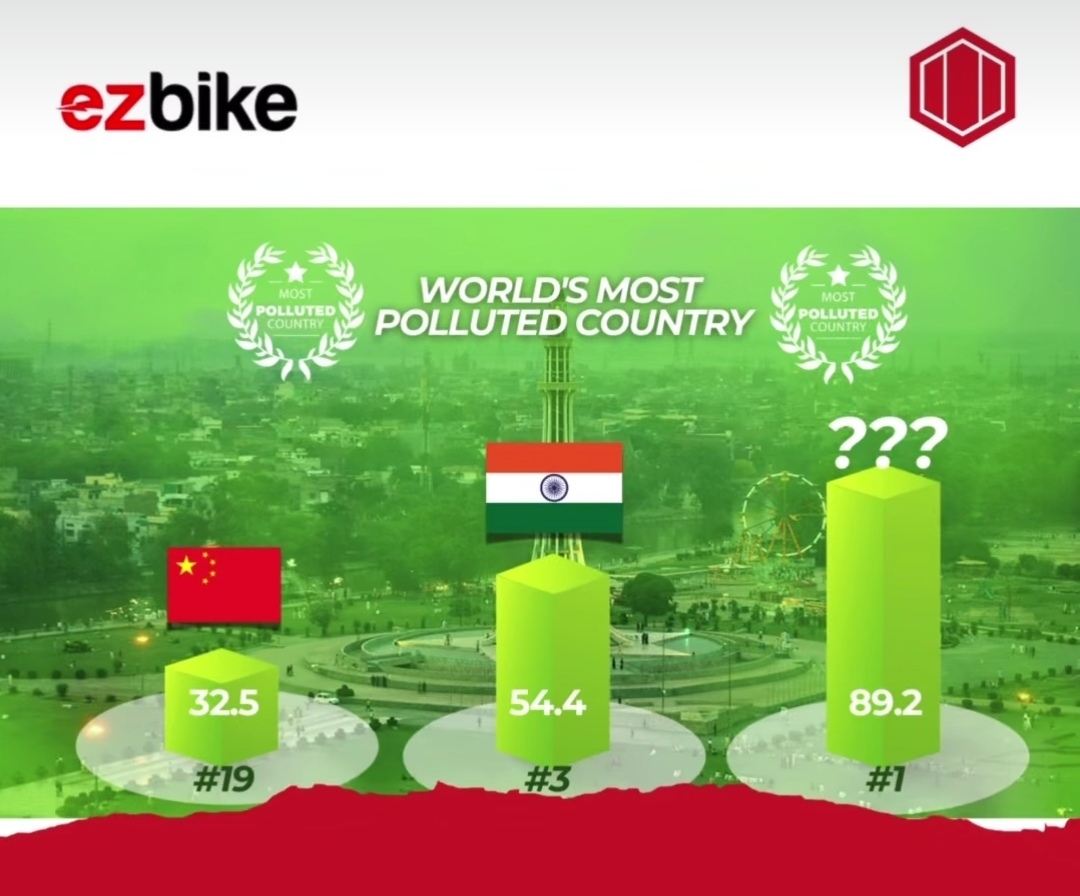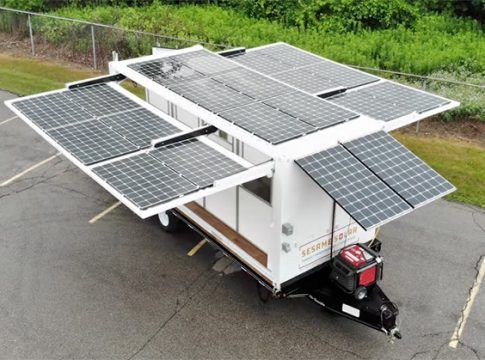Redcity Collabs with EZbike on YouTube to Uncover the world's Most Polluted Country in late 2024.
Ever wondered what country held the top spot as the world's most polluted country in late 2024? If you thought India or China, you'd be shocked to discover that’s not the case.
Although India held a top spot on the list, it was and still is the 3rd most polluted. China, on the other hand, had, over the years, made significant efforts to reduce its pollution impact and was no longer among the top 3.
In a recent YouTube video, Redcity partnered with EZbike to expose the country ranked the highest on the list.
It was discovered that by late 2024, Pakistan’s air pollution index reached an all time high of 71x above WHO standards, making it one of the highest recorded air pollution on earth till date. For this reason, the country emerged as the world’s most polluted at the time. Its air quality levels posing significant health risks to its population of over 250 million people.
According to the Air Quality Index (AQI) Report, from September to December, the country’s AQI remained far above 100, indicating unhealthy air quality. Meanwhile, its fine particulate matter (PM2.5) reached a staggering 50-78, significantly affecting public health.
Health implications
Prolonged exposure to this unhealthy air ultimately led to respiratory and cardiovascular diseases, reducing the average Pakistani's life expectancy by approximately 3.9 years and 7 years in heavily polluted areas like Lahore, Karachi, and Peshawar.
EZbike's Innovative Solution
The need to address the crisis led companies like EZbike to proffer innovative solutions, particularly in the transportation sector.
As Pakistan’s first electric vehicle ecosystem, EZbike introduced electric bike-sharing services across various cities. The bikes offer an eco-friendly and affordable alternative to traditional gasoline-powered bikes, aiming to reduce vehicular emissions and improve urban air quality.
Because of this, Redcity, a company focused on resolving urban environmental issues, featured EZBike in a recent video to discuss the severity of air pollution in Pakistan and showcase how the company helps resolve it with its electric scooters.
The video features insights on how the company transforms gasoline-powered bikes to electric bikes. It also discusses how the company was able to go from importing electric bikes to manufacturing them in a bid to cut down costs and make them more affordable. From the video, you also discover the different steps the company took in resolving problems, such as the high cost of EV batteries.
In essence, the collaboration serves as the first of many in Redcity's efforts to enlighten society on the need for more sustainable actions. And with more collaborations anticipated in the coming future, we hope to bring to light more establishments leading the way in sustainable solutions.
We would also like to announce our recent feat of 1000 subscribers. We couldn't have done it without you! And if you're not yet subscribed, you can visit our YouTube channel here. Check out our exciting content and turn on post notifications to stay tuned whenever we post.
For a chance to also feature your company in any of our coming videos, feel free to reach out to us on Instagram @redcityestate.
You can also discover our products and services here and visit our blog here to check out more enlightening news and updates.


